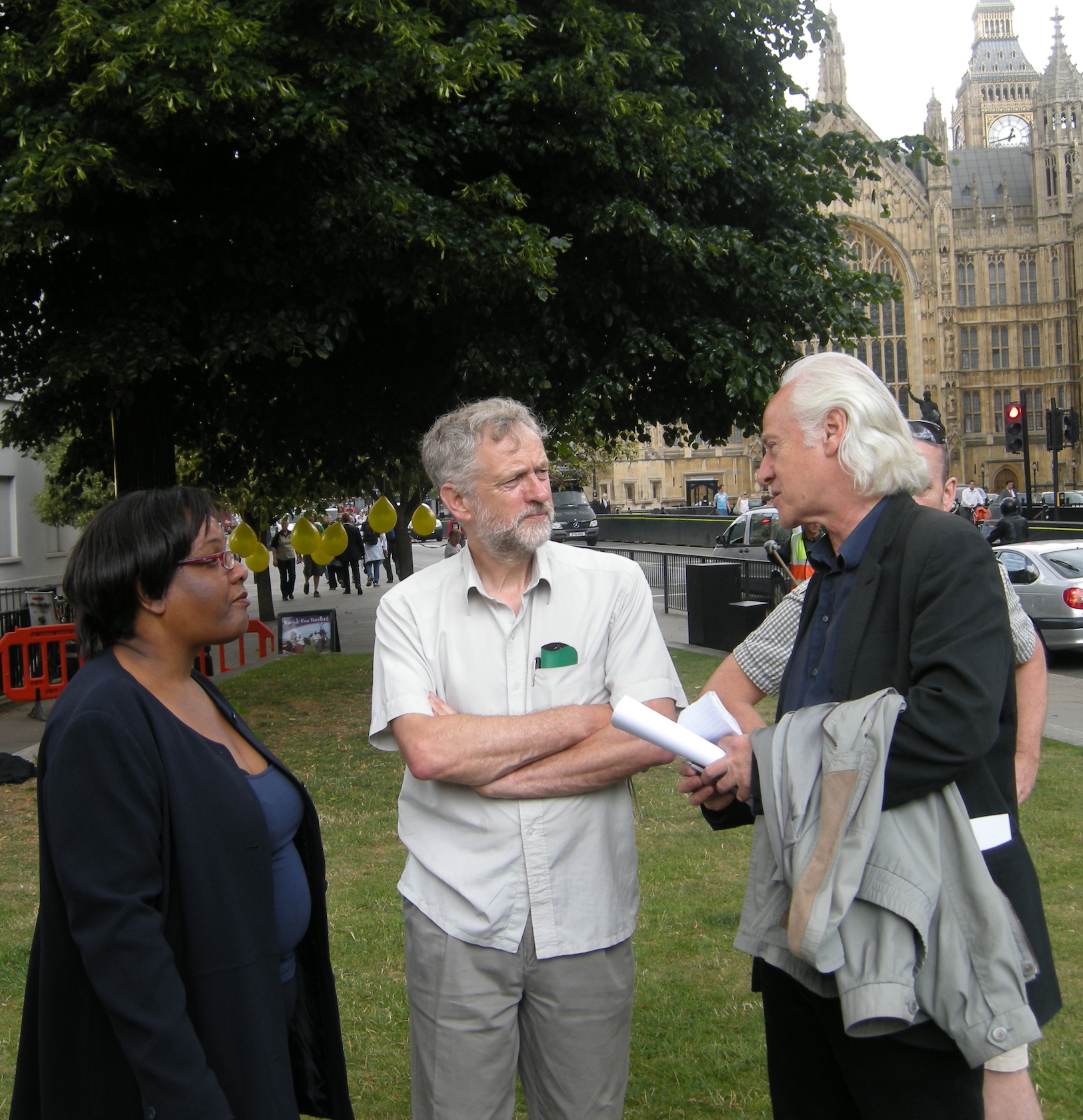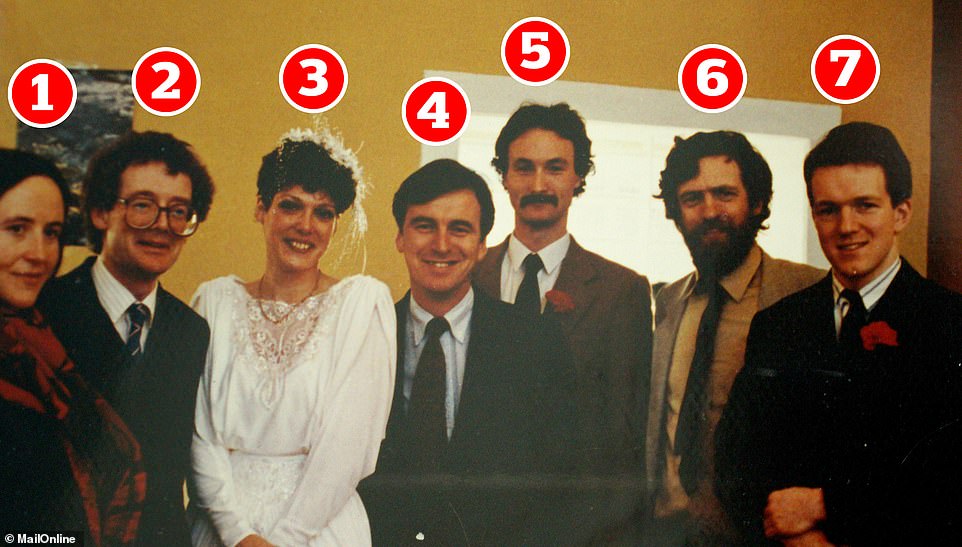Since the turn of the millennium, why have politicians lost interest in miscarriages of justice? Paul May explores how the establishment of the independent CCRC has turned out to be more of a curse than a blessing – and how opportunistic politicians have dampened enthusiasm for overturning wrongful convictions.
 It’s beyond dispute that political interest in wrongful convictions has waned considerably over the past couple of decades. This decline is often attributed to the establishment of the Criminal Cases Review Commission (CCRC) in 1997, which took over the home secretary’s powers to investigate potential miscarriages of justice and – where appropriate – to send them back to the courts.
It’s beyond dispute that political interest in wrongful convictions has waned considerably over the past couple of decades. This decline is often attributed to the establishment of the Criminal Cases Review Commission (CCRC) in 1997, which took over the home secretary’s powers to investigate potential miscarriages of justice and – where appropriate – to send them back to the courts.
The long-advocated body finally became a reality on the recommendation of the Royal Commission on Criminal Justice, set up in the wake of the 1991 exoneration of the innocent Irishmen known as the Birmingham Six. The perception that the CCRC has permanently resolved – and therefore depoliticised – the issue has certainly been a major factor in deflecting attention, but does it tell the whole story? Not only do I believe that this perception is mistaken, but I also think that opportunistic policies adopted by leading politicians – often bordering on irrational hostility towards innocent victims of injustice – have played a significant role.
- This article features in the latest issue of Proof magazine, the crime and punishment issue – out now.
- Buy Proof here
- The picture comes from the Daily Mail article. It began: ‘Smiling for the camera beside the bride and groom, these photos show Jeremy Corbyn and John McDonnell at the prison wedding of a Guildford Four member, a convicted IRA bomber at the time.’
- Paul May, who has led campaigns to overturn the wrongful convictions of the Birmingham Six, East Ham Two, Bridgewater Four and Sam Hallam
When the campaign for the Birmingham Six formed in 1985, one of our immediate goals was to build parliamentary support. The home secretary – an elected politician – had the power to send the convictions back to the courts. To that end, it was completely legitimate to apply democratic pressure.
Concern about miscarriages of justice wasn’t confined to any particular political persuasion. The first MP to provide sustained support for the Six was the Conservative Sir John Farr, accurately described by the Independent as ‘an old-fashioned, right-wing Tory romantic’. In 1986, he joined Labour’s Peter Archer and Liberal MP David Alton to encourage the home secretary to refer the case.
Among MPs who supported the Guildford Four was prominent Monday Club member Sir John Biggs-Davidson. In 1987, Chris Mullin, whose book Error of Judgment comprehensively demolished the prosecution case against the Birmingham Six, entered the Commons. He relentlessly pursued their cause inside and outside the chamber. By the time of their release, the men could count on the support of around 100 MPs.
In January 1988, the Court of Appeal dismissed the Six’s appeal against conviction. MPs, including future minsters, were unafraid to join the chorus of condemnation for the court’s bigoted, dishonest judgment. John Reid acidly asked the attorney general if his nostrils could detect the ‘whiff of scandal’ surrounding the case. Joan Ruddock branded the judgment ‘a stain on the entire fabric of our legal system’, while Chris Mullin accused the authorities of knowing ‘the identities of at least three of the four’ people who carried out the 1974 pub bombings. Sir John Farr urged that the Six be pardoned, side-stepping the courts altogether.
During the 1990s, a succession of innocent men and women were exonerated after years of hard-fought campaigning. Cases in which I was closely involved during that time included Judith Ward, the East Ham Two, Bridgewater Four, Danny McNamee and (to a lesser extent) the Tottenham Three. While the level of parliamentary support for these campaigns wasn’t as high as for the Birmingham Six, we could still rely on significant backing from MPs.
In the 1990s and early 2000s, I helped out from time to time in the office of a then-obscure backbench MP, Jeremy Corbyn. I worked with him on many human rights and civil liberties issues, including miscarriages of justice. In the 1980s, he’d taken up the Guildford Four case – at the time of his arrest, Paul Hill lived in Islington North. From then on, Corbyn was a consistent champion of wrongly convicted inmates, making regular prison visits and raising their cases in Parliament whenever he could.
Even as the innocent walked free, there were portents that the political wind was changing. Insidious smear stories circulated, suggesting that the convictions were quashed due to arcane legal technicalities and that the appellants were in fact guilty. There was never the slightest truth in these slurs but the lies still spread.
Ever since the CCRC’s inception, successive secretaries of state have treated it with barely-disguised disdain. In 2005-06, the CCRC’s annual budget was £8m, and it dealt with 938 cases. By 2017-18, funding had plummeted to £5.6m, even as annual applications had risen to 1,439. In summer 2018, Conservative justice minister Edward Argar MP said that ‘the CCRC is sufficiently funded for the work that it does’.
Delivered in 2002 when he was prime minister, Tony Blair’s widely publicised speech proclaiming his wish to ‘rebalance’ the criminal justice system marked a watershed moment in political attitudes towards miscarriages of justice. It carried the clear implication that protecting the innocent allowed offenders to go free.
In a particularly witless passage, Blair claimed that ‘the biggest miscarriage of justice’ arises if ‘the guilty walk away unpunished.’ Is this a worse injustice than the wrongly convicted Guiseppe Conlon of the Maguire Seven receiving abysmal treatment for tuberculosis and asking his captors with his dying breath how it felt to be killing an innocent man? Worse than the innocent Sam Kulasingham of the East Ham Two embarking on a desperate 53-day hunger strike, his weight falling below 30kg and only narrowly avoiding death? Or maybe worse than Michael Hickey of the Bridgewater Four protesting on a prison rooftop for 90 days of a bitterly cold winter, and as a result being detained for many years in a secure psychiatric hospital?
The fallacy in Blair’s argument was obvious. In most cases where an innocent person is convicted, the guilty remain free to commit further offences. Affording lower priority to avoiding and correcting wrongful convictions isn’t getting ‘tough on crime’ – it positively encourages it.

Jeremy Corbyn and Diane Abbott talking to the journalist Duncan Campbell at a ‘Free Sam Hallam’ demo
Falling out of fashion
Ministers obediently followed the prime minister’s lead. In 2006, home secretary Charles Clarke MP ended the ex-gratia compensation scheme for miscarriage of justice victims. His successor, John Reid, developed complete amnesia about his previous enthusiasm for the Birmingham Six case. He issued a Home Office paper entitled, ‘Quashing Convictions’. It claimed (falsely) that the Court of Appeal was keener to ‘quash convictions than they [sic] used to be’ and (again erroneously) that many criminal appeals succeeded ‘on purely procedural grounds’.
In 2014, Conservative justice secretary Chris Grayling MP forced through legislation which turned the centuries-old presumption of innocence on its head. Even where the courts set aside convictions after lengthy deliberation, compensation won’t be paid unless appellants can convince the secretary of state ‘beyond reasonable doubt’ that they couldn’t have committed the offence. Other measures such as savage legal aid cuts and regular (unpunished) disclosure breaches have helped to add to the dismal catalogue of wrongful convictions.
Between 2006 and 2012, I chaired the campaign for innocent Londoner Sam Hallam. I also represented him in his application to the CCRC. I wasn’t surprised when his Hackney South constituency MP Meg Hillier bluntly refused any contact with Sam’s campaign.
In the past, I’d collaborated amicably with MPs belonging to the Labour, Conservative, Liberal Democrat, SNP, Plaid Cymru, SDLP and Ulster Unionist parties but I was acutely aware that the political atmosphere had altered. Hillier was as good as her word and did nothing during the long campaign to win justice for Sam. He was released on 16th May 2012 amid widespread media publicity.
The next day, Hillier wrote to Sam’s mother Wendy Cohen saying that she’d ‘arranged a brief meeting with the Commissioner of the Metropolitan Police and [was] seeking a longer meeting with him’. We sent a robust response pointing out that she possessed no authority to act on Sam’s behalf, especially as his lawyers were considering potential proceedings against the Met.
Hillier also categorically declared that Sam ‘will be entitled to compensation’. As a former Home Office minister she should have known this was unlikely. At the time of writing, Sam is awaiting the Supreme Court’s judgment on the government’s refusal to offer compensation.
In 2015, the justice select committee conducted an inquiry into the CCRC, taking evidence from 47 witnesses. The committee’s members included Jeremy Corbyn and John McDonnell. Long before McDonnell’s election to Parliament, he had chaired the Guildford Four Campaign.
The committee’s report made sensible recommendations aimed at improving the CCRC’s effectiveness. Yet then-justice secretary Michael Gove dismissed the entire report, claiming that he had consulted the former lord chief justice, Sir Igor Judge, who assured him that reform was unnecessary. Judge certainly knew about wrongful convictions, having prosecuted at the Bridgewater Four’s 1979 trial and at the Birmingham Six’s appeal in 1987-88.
His first trial as a judge led to the wrongful robbery conviction of Birmingham man, Hassan Khan. Judge didn’t find it odd that although evidence suggested that the real robber had run away from the scene at high speed, Khan’s foot was heavily bandaged following a recent operation to amputate two toes. Nor did he hesitate to allow into evidence a 22-page unsigned oral ‘confession’ which officers claimed they wrote down by torchlight in the back of a fast-moving car at a time when custody records showed their suspect was in a police station cell.
The political pendulum swings perpetually. I console myself with the thought that Corbyn and McDonnell may soon occupy the highest offices in the land. Who knows? Justice for the innocent might once again become politically fashionable.
Eddie Gilfoyle, Colin Norris and many other victims of injustice certainly hope so.







